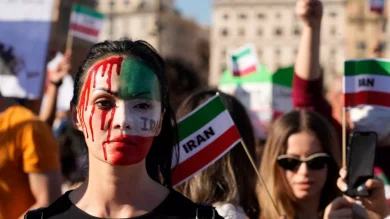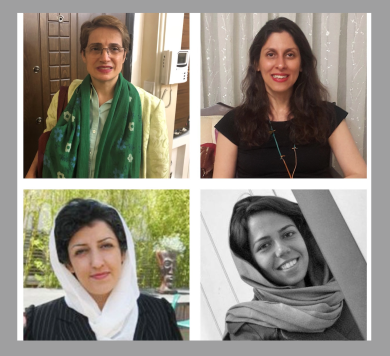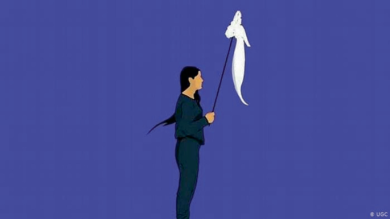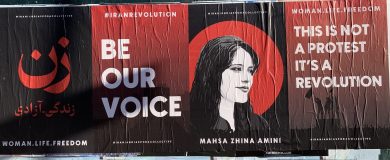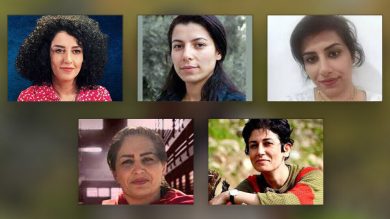In the Islamic Republic of Iran, economic hardship is not merely a byproduct of sanctions and mismanagement—it is a deliberate outcome of systemic oppression. Among those who suffer the most are Iranian women, who face double layers of discrimination: one as citizens of a corrupt, authoritarian regime dominated by the Islamic Revolutionary Guard Corps (IRGC), and another as women in a deeply patriarchal society.
The IRGC, with its vast economic empire, siphons national wealth into projects that suppress dissent, fund proxy wars, and enrich elites, leaving the majority of Iranians—and particularly women—struggling for survival.
This opinion piece explores:
• How IRGC economic policies specifically disadvantage women.
• The ways women are economically marginalized, from education to employment.
• Stories of resistance where women challenge this oppression.
• Why empowering women economically is vital for Iran’s future freedom.
1. The IRGC’s Economic Grip on Iran
A. A Corrupt Economic Empire
The IRGC is not just a military organization; it is Iran’s largest economic conglomerate, controlling sectors like:
• Oil and gas
• Construction and infrastructure
• Banking and telecommunications
• Black market trade
Its monopolistic control ensures that profits flow back to the regime rather than to ordinary citizens. The IRGC’s projects are typically awarded without transparency, meaning cronyism flourishes while real economic opportunity shrinks.
B. Sanctions and Economic Isolation
While international sanctions target Iran’s ruling elite, the IRGC’s corruption and economic mismanagement magnify their effects on everyday people. Women—already marginalized—face:
• Job scarcity
• Inflated costs of living
• Limited access to essential goods and services
Economic sanctions hurt Iranian women disproportionately because they already navigate an economy that places them last in line for opportunities.
2. How IRGC Policies Marginalize Women Economically
A. Limited Access to Employment
Iranian women face severe gender-based employment discrimination, worsened by IRGC policies:
• Government contracts favor businesses loyal to the IRGC, which rarely hire women.
• Workplace regulations are heavily biased, with jobs often denied to women under the guise of “protecting Islamic values.”
• Women working in sectors like media, NGOs, or education are monitored and purged if suspected of dissent.
The unemployment rate for women in Iran is almost double that of men—a crisis rooted not only in traditional sexism but also in regime policy.
B. Financial Disempowerment
IRGC-aligned banks and institutions:
• Deny loans to independent women entrepreneurs.
• Prioritize funding for male-dominated, regime-loyal businesses.
• Create legal barriers that make property ownership and financial independence difficult for women.
Without financial autonomy, women are trapped in cycles of dependency and poverty, unable to fully participate in the economy or civic life.
C. Education Undermined by Ideological Control
Though Iranian women are highly educated (making up more than 60% of university students), their skills are often:
• Wasted due to limited job prospects.
• Undermined by ideological gatekeeping in fields like law, journalism, and international relations.
• Weaponized to serve regime propaganda if they want to advance professionally.
The IRGC’s control over academia and professional licensing leaves few genuine paths forward for educated women.
3. Real Stories: Women Paying the Price
A. Entrepreneurs Facing Systemic Barriers
Many Iranian women have turned to small businesses and underground economies to survive. Examples include:
• Artisans and online sellers facing harassment by security forces for “unlicensed activity.”
• Female shop owners being shut down arbitrarily for “moral violations.”
The IRGC views independent female economic power as a threat to state control.
B. Women Protesters Demanding Economic Rights
The 2017-2018 economic protests and the 2022 Women, Life, Freedom uprising revealed that:
• Women are at the forefront of demands for economic justice.
• They link economic suffering directly to political oppression by the IRGC.
Many women protesters have been jailed, tortured, or disappeared simply for demanding basic economic dignity.
4. The Bigger Picture: Economic Oppression as a Tool of Control
The IRGC’s strategy is clear:
• Weaken women economically to weaken society’s resistance.
• Reward regime loyalty while punishing independence.
• Create poverty and dependency so that survival takes precedence over political action.
Thus, economic oppression is not incidental—it is intentional.
5. Why Women’s Economic Empowerment is Crucial for Iran’s Future
A. Economic Freedom = Political Freedom
Empowered women are:
• More likely to organize and sustain resistance movements.
• Less vulnerable to coercion by the state.
• Better able to create alternative power structures outside of the regime’s reach.
Economic empowerment leads directly to civic empowerment.
B. Building a New Iran from the Ground Up
When Iranian women gain economic independence, they:
• Support families and communities outside the regime’s control.
• Foster education and critical thinking among the next generation.
• Invest in rebuilding Iran’s economy on principles of justice, transparency, and equality.
Women are not just fighting for their rights—they are building the foundations of a new Iran.
6. What the Global Community Can Do
A. Sanction the IRGC’s Economic Fronts
• Identify and sanction IRGC-owned businesses and their international partners.
• Disrupt the regime’s funding channels to limit their tools of oppression.
B. Support Iranian Women’s Entrepreneurship
• Fund initiatives that support independent Iranian women entrepreneurs.
• Offer digital tools and platforms that help bypass regime control.
C. Amplify Women’s Voices
• Share the stories of Iranian women entrepreneurs, professionals, and activists.
• Elevate their voices in international media and policymaking forums.
Conclusion: Women Will Break the Chains of Economic Oppression
The IRGC’s policies are designed to keep women economically dependent, politically silenced, and socially marginalized. But Iranian women are refusing to accept this fate. They are creating businesses, organizing protests, sharing their stories—and in doing so, they are chipping away at the regime’s control.
Join Our Newsletter!
Stay informed with the latest updates, news, and ways to take action in the fight for justice and global security. Sign up now to get updates delivered straight to your inbox!

